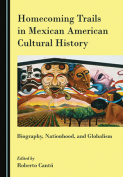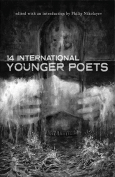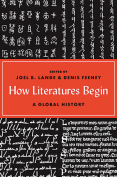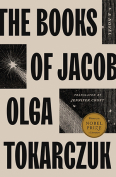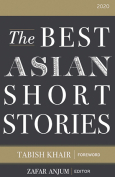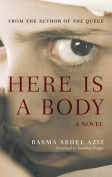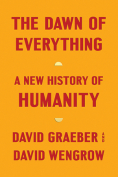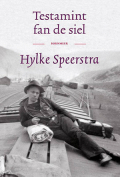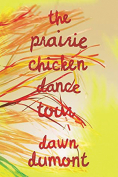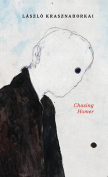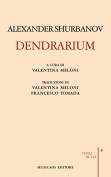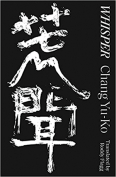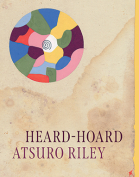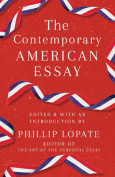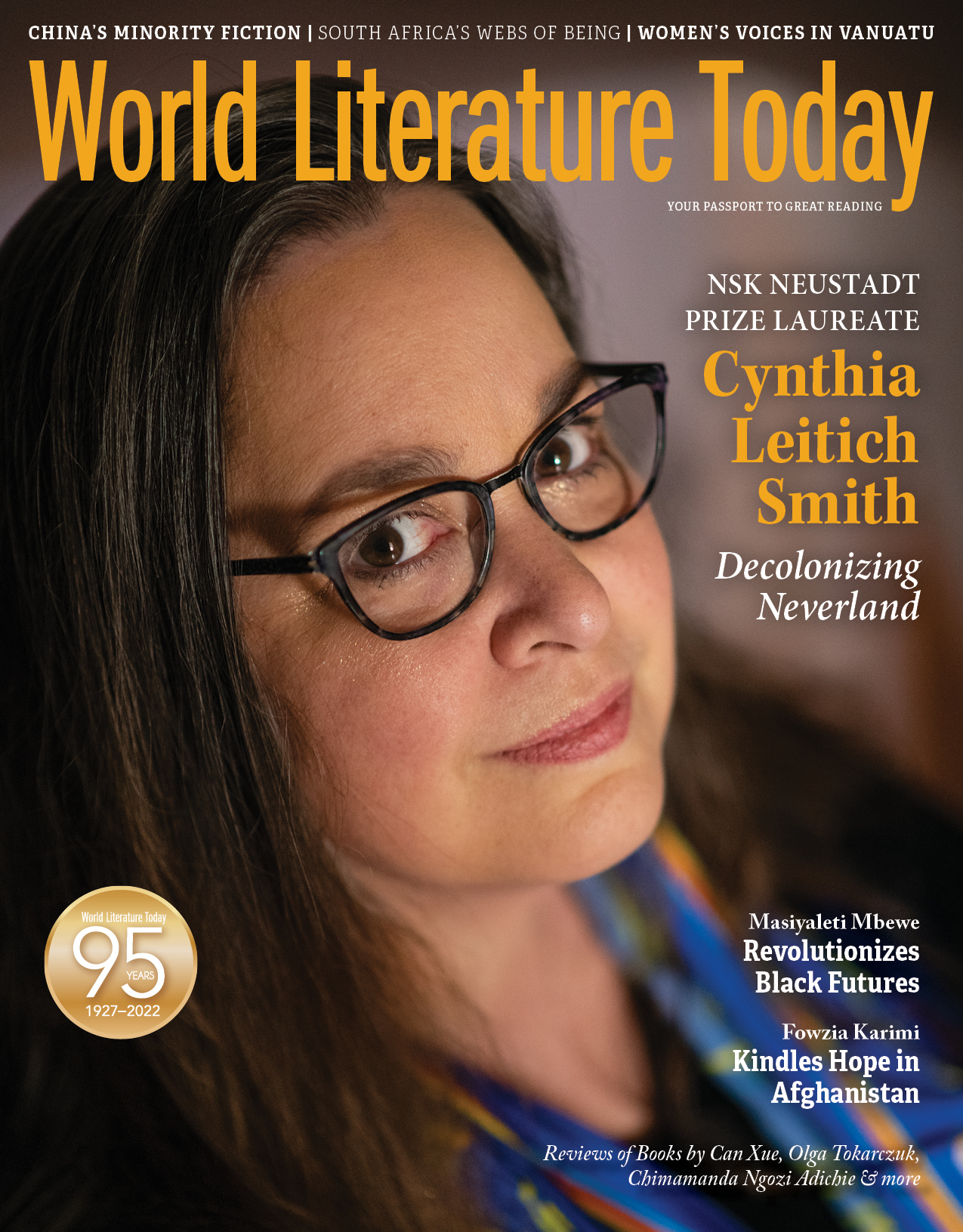The Dawn of Everything: A New History of Humanity by David Graeber & David Wengrow
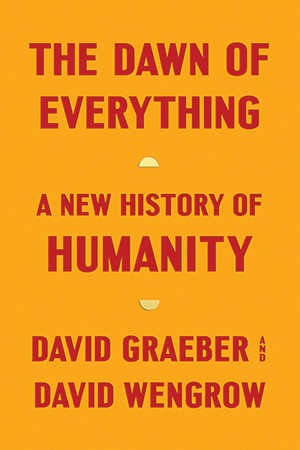 New York. Farrar, Straus and Giroux. 2021. 704 pages.
New York. Farrar, Straus and Giroux. 2021. 704 pages.
THE DAWN OF EVERYTHING: A New History of Humanity is the grandiose title of David Graeber and David Wengrow’s new book. It aims to undermine the main lines of anthropological thought since Rousseau’s origins of inequality and noble savage theses.
“Most of human history is irreparably lost to us” (not to mention prehistory), which could serve as a warning against selective citations (“cherry-picking”) or making things up as one goes along. There is a pretty clear main thrust to the book, as summed up on its last page: to treat as myths such notions as “that a time before inequality and political awareness existed; that something happened to change all this; that ‘civilization’ and ‘complexity’ always come at the price of human freedoms . . .”
The “something” that “happened” was agriculture, the turn to domesticated life, and Graeber and Wengrow boldly attempt to rescue its good name. “Agriculture did not mean the inception of private property,” they assert, but that’s precisely what that cornerstone of unfreedom and equality did mean. Nothing could be more obvious and established, as their revered Friedrich Engels noted in his Origin of Family, Private Property and the State.
For a book on origins, a book of almost seven hundred pages, there is surprisingly little on the subject of agriculture. Domestication cannot be found in the index. And per Graeber and Wengrow, agriculture often wasn’t that bad. It wasn’t a no-exit trip; people were “moving freely in and out of farming” throughout most of our species’ existence. Far more in accordance with anthropological evidence is the view offered by Charles Foster in his new book, Being a Human: farming is like heroin, “easier to get into than out of.” As many archaeological and anthropological studies attest, the boundaries between hunter-gatherer practices, horticulture and “tending the wild,” and full-on agriculture are fluid and, often, contested. But the shift to pastoralism and agriculture has been widely understood in recent decades as the main catalyst for divisions of labor, private property, and attendant ills.
Clearly, the underlying objective of The Dawn of Everything is to affirm that domestication, civilization, and urbanization are good for people and the planet. And part of the job is to cast aspersions on those who lived outside of those dimensions and/or to raise doubts as to the facts of their “outsider” status. In pursuit of these aims, Graeber and Wengrow have played fast and loose with the evidence.
Let’s look at a couple of examples, cited in reviews and, more importantly, by Wengrow in postpublication public discussions. The first is a 1600 bce archaeological site in northeastern Louisiana, now known as Poverty Point. This is described as a “hunter-gatherer metropolis the size of a Mesopotamian city-state.” But it was neither a metropolis nor inhabited by predomesticated people. Much scholarship indicates that horticulture was practiced here and that people gathered here periodically to trade. There is little or no evidence of residential structures. A metropolis with no inhabitants!
The book also brings up the case of the Calusa people of southwest coastal Florida, a “kingdom,” a “monarchy of hunter-gatherers.” It was indeed a complex, sedentary, stratified society that subsisted mainly on the bounty of the sea. But there is evidence that they grew papayas and maize. Northwest Coast indigenous groups, often cited as nonegalitarian hunter-gatherers, also domesticated dogs and tobacco; their potlatch ceremony existed to counter the accumulation of wealth that led to inequality. Where to draw the line? It seems that any practice or embrace of domestication’s control ethos may have a significant social impact. Needless to say, domestication per se does not always entail great inequality. The dynamic of domestication deserves more study.
Graeber and Wengrow bring Lawrence Keeley’s War before Civilization to mind. Keeley tried to show how warlike hunter-gatherers often were, by citing various “primitive” folks—almost none of whom were in fact hunter-gatherers.
Tacitus had this to say about Britons who were being absorbed into the Roman empire: “Little by little they were led to things which encourage vice: porticoes, baths, elegant supper parties. All this in their ignorance they called civilization, when it was only a part of their slavery.”
Graeber and Wengrow tackle urbanization chiefly by looking at some Ukrainian sites and one Mesoamerican city, largely ignoring what we know about much-studied major cities in early civilizations. They conclude that many early large cities showed no sign of centralized rule, no palaces, no major storage facilities, nor distinctions of rank or wealth. “A New History” indeed, one not much bounded by rigor or evidence.
Here I think of Steven Pinker’s The Better Angels of Our Nature, which argues that there has never been so little violence in the world. Shredded by critics, the book proceeds by omitting enormous categories of violence.
In an age of pandemics, density itself is problematic. Along the road to cities, domestication brought larger and larger population centers. Here was the origin of infectious diseases as well as many degenerative diseases (tooth decay being a notable example). Plagues could not get a foothold or spread widely among small, scattered-band societies.
In Civilization and Its Discontents, Freud pointed out an even deeper disaster, the core meaning of domestication, and its impact. Civilization inflicts a wound that never heals, the foundation of neurosis, the engine of unhappiness. One tames or “breaks” a horse, putting it to work. Humans never get over this. This very radical insight implies that the solution must be an end to domestication, a step Freud shrank from. In a similar vein, Jared Diamond called agriculture “the worst mistake in the history of the human race.”
Domestication, civilization, cities—an ensemble and a momentum that is increasingly seen as ruinous, even fatal. Grave doubts arise in a world more and more threatened on every level, in every sphere. Why else would Google and Facebook be placing full-page ads in conventional outlets like the New York Times and the New Yorker? Joseph Tainter’s The Collapse of Complex Societies explained how ever-greater complexity takes civilizations past their carrying capacity; the parasite consumes its host and both die. Exactly what we are seeing amidst the pathologies of late civilization. The dominant order, contra Graeber and Wengrow, was never healthy and valid, and it sure as hell is not now.
John Zerzan
Eugene, Oregon
